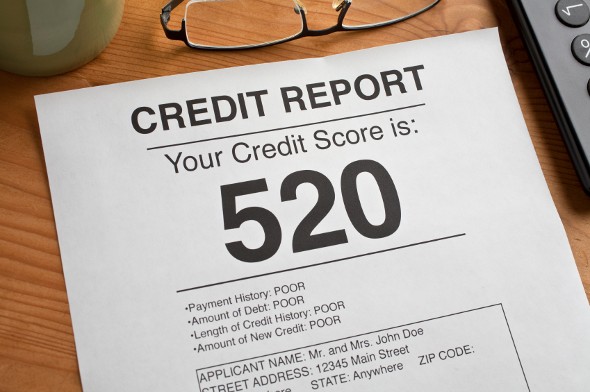Credit scores are very important when it comes to your finances but ironically, they’re also widely misunderstood. From how they’re calculated to what they’re used for, many consumers are getting it all wrong. If you’re a little vague on the details of how credit scores work, these are some of the biggest misconceptions you need to steer clear of.
Check out our investment calculator.
1. Credit Scores and Credit Reports Are the Same
Your credit report and your credit score serve a similar purpose, but they’re entirely different beasts. A credit report lists out relevant details about your debts, including what you owe, who you owe it to and your payment history. A credit score, on the other hand, is a three-digit number that’s calculated based on the information in your credit report.
Lenders look at both when making credit approval decisions, but one doesn’t replace the other.
2. You Only Have One Credit Score

While having a single credit score would certainly simplify things, that’s just not the reality. There are a number of different models lenders use to verify credit information, including VantageScores, Beacon scores and FICO scores, which are generally the most popular.
Individual scoring models also develop multiple scores for specific purposes, such as buying a car or applying for a mortgage. Altogether, it’s possible to have more than 50 FICO scores alone.
Related Article: What Credit Score Is Needed to Buy a House?
3. Checking Your Own Credit Hurts Your Score
Any time you apply for a credit card or a loan, it shows up on your credit report as a hard inquiry. Inquiries count for 10% of your FICO score and each one can knock about three to five points off your score.
That being said, you won’t do any damage to your credit by pulling your report or checking your score yourself. In fact, it’s a good idea to check both regularly for suspicious charges or other activity that may be a sign of identity theft.
4. The Higher Your Income, the Better Your Score
How much money you make plays a significant part in lending decisions, especially if you’re looking to buy something big like a home. Lenders want to be able to see that you have enough money coming in to cover all of your financial obligations each month, including your debt payments. It doesn’t, however, directly impact your FICO credit score.
5. Closing a Credit Card Erases Your Account History

Closing a credit card hurts your credit score, but it’s not because your account history suddenly vanishes. Positive information can stay on your credit report forever, even after you stop using the account. Negative information usually drops off after seven years.
The real issue with shutting down a card is how it impacts your credit utilization ratio. This is the amount of available credit you have compared to your total credit line.
If you close down an account that has a high credit line, it can increase your utilization ratio which in turn decreases your score. If you’re carrying balances on other cards, you may be better off leaving the account open until you get some of the debt paid down.
Check out our credit card calculator.
Final Word
Credit scores aren’t set in stone, so if you’ve bought into any of these fallacies it’s not too late to turn things around. Education is the key and the more you know about credit scores, the easier it is to make yours soar.
Photo credit: ©iStock.com/elenaleonova, ©iStock.com/Kirby Hamilton, ©iStock.com/OcusFocus
